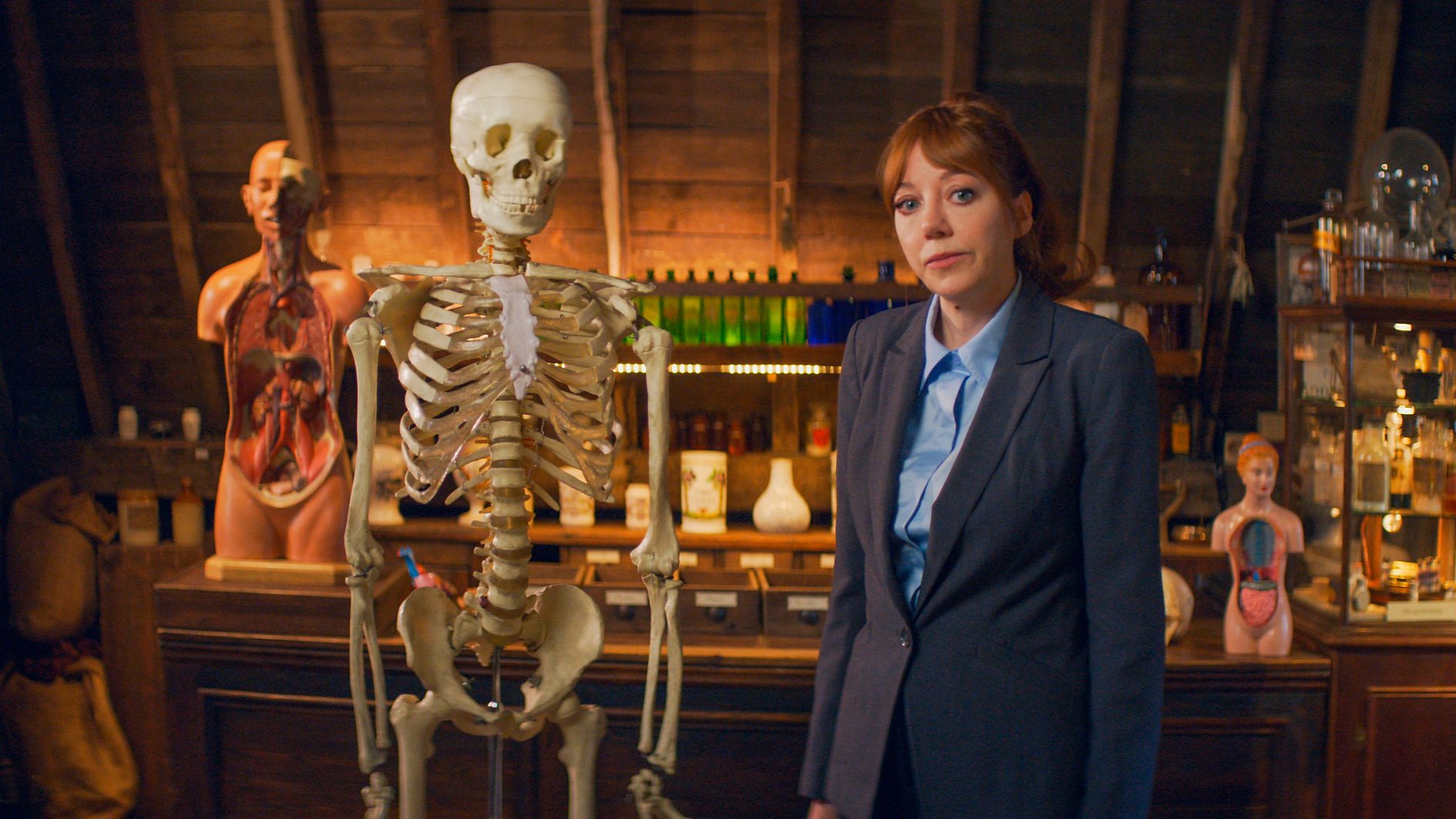Oftentimes, the history of our world can be confusing to parse through. We find ourselves in need of a guiding figure to clarify our society and development—someone to teach us the true meaning of life. Luckily for us, Netflix delivers this character to our very doorstep.
The mockumentary Cunk on Life aired on Netflix on Dec. 30, 2024, featuring Charlie Brooker’s infamous character, Philomena Cunk (Diane Morgan), and her attempt to make sense of our world through hilarious interviews with real professors and historians.
Cunk has been gracing our screens since her first appearance in Brooker’s 2013 comedy series, Weekly Wipe. But it wasn’t until 2022 that the Netflix miniseries Cunk on Earth catapulted her to fame. The series attempts to explain the history of the world as we know it, with each of its five episodes tackling a different era in time. The defining quality of the show? Cunk knows nothing about the world. She consistently messes up the names of famous historical figures (shoutout to Michael A.N. Jello), interjects inappropriate stories about her life, and talks to trained professionals as if they are her girlfriends. Her deadpan delivery and blissful ignorance about everything bring the humor that makes all of her projects so lively.
Morgan’s perfect portrayal of Cunk is what makes the film so fun to watch. She captures the very essence of idiocy while still asking questions that are relevant and captivating to audiences today: I, for one, was also curious about the strength of Michelangelo’s arms and why we call it the “Dark Ages” when we technically did have candles.
Cunk also, rather unintentionally, connects the stories of the past to pop culture, therefore making these stories easier to understand. Calling Moses the “Mr. Beast of his day” may sound stupid at first, but could help audiences determine Moses’ role in the ancient world more clearly.
Her simplicity highlights the lack of complexity or development, but that is what defines Cunk’s character. She does not falter in retaining the qualities that make her so intriguing in the first place—she will continue to believe whatever narrative she wants and relentlessly force them onto her guests.
Following the traditional format of other Cunk shows—narration interspersed with interviews from actual professors and scientists from British universities—this documentary showcases natural settings, reminiscent of typical historical documentaries. It is split up into chapters exploring a range of topics including religion, art, evolution, quantum physics, hallucinogens, and childbirth. Although it feels scattered and chaotic, this film focuses on the quintessential question, “how did we develop into the people we are today?”
The Cunk production’s interviews are a key highlight of the show, with the participation of certified professionals in ridiculous conversations giving the “mockumentary” the feeling of a true parody. Oftentimes, it seems as though the interviewee isn’t even in on the jokes, and their genuine bafflement by her bizarre questions is rather amusing. Moreover, Cunk interjects their responses with personal stories about her wacky ex-boyfriend Sean and his crazy habits, bringing her character to life.
Something that differentiates this movie from other Cunk projects, however, is the introduction of long-form skits in between interviews. At one point, Cunk describes a rather long and intimate sex scene between Dr. Hubble and his wife after he discovers the existence of galaxies beyond our own. Another scene features a full-blown commercial for a Philomena Cunk doll, juxtaposing a different ad introducing us to a rather depressing streaming service, Streamberry, that provides viewers with content best matching their despair and existential helplessness. These skits not only lengthen the run time—this is Brooker’s longest project with Cunk yet—but also break up some of the monotony of the interview and narration-based format. It is an interesting change of pace, but one that doesn’t seem to serve the film well.
While the longer run time makes it feel more like a movie, none of the actual skits themselves were funny. I did not need to see puppets singing about suicidal ideations, or Cunk’s alternate consciousness being shot during a guided meditation session. These weird asides took away from the funnier, more genuine bits and pieces of what makes Philomena Cunk so funny. Moreover, I found myself laughing at the same bits from Cunk on Earth, and there were not many standout aspects that separated it from the television series—if anything, the film simply feels like an elongated version of a Cunk on Earth episode.
The humor in this film also felt a bit more juvenile than previous Cunk specials. While there were always sex jokes and potty humor, this movie turned it up an unnecessary notch. Dumb humor is appreciated, but not at the expense of intelligent jokes. Often, there were desperate grabs for laughter instead of the iconic wit characteristic of most Brooker projects.
Finally, the film’s format fell flat. Cunk on Earth was split into five episodes, each covering a different topic or era. While Cunk on Life tries to emulate this by splitting the film into chapters, it fails to create a clear, cohesive timeline. I was often left feeling rather confused and thrown around as we jumped from topic to topic with no effective transitions.
All in all, this film was funny but unnecessary. This content works best as a television series—its short, choppy style is the perfect way to avoid awkward, longer sketches. Directors have a habit of trying to tamper with perfect humor, to achieve more fame or glory. However, most of the time, a film or show doing well can be a sign to quit while you’re ahead. As my mother always says, “If it ain’t broke, don’t fix it.”




